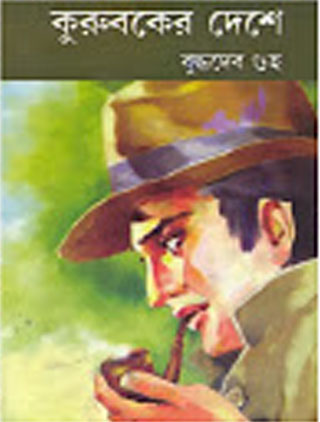Buddhadeb Basu Books
Discover Book Depository's huge selection of Buddhadeb-Basu books online. Free delivery worldwide on over 17 million titles.

Contents • • • • • Early life [ ] Born in 1944 in north, Bhattacharjee belongs to a family which had produced another famous son. Revolutionary poet was his father's cousin. A former student of.
He studied Bengali literature at the, Kolkata, and secured his B.A degree in Bengali (Honours), later he joined the CPI(M) as a primary member. Besides taking active part in the food movement, he also supported 's cause in 1968. He was appointed state secretary of the Democratic Youth Federation, the youth wing of the CPI(M) that was later merged into the. Career [ ] In 1977, Bhattacharjee was elected as a Legislative Assembly Member for the first time. His constituency then was. It was the first time that the CPI(M)-led came to power in West Bengal. He was given charge of the ministry of information and culture; it was his favourite position and during his tenure he contributed to theatre, movies and music.
After losing the 1982 assembly election from Cossipore, he changed his constituency to in 1987. The move was successful; he won comfortably and regained his post. Bhattacharjee is also known to be a passionate fan. An avid traveller, he has toured extensively in, the erstwhile,,,, and. Bhattacharyya and his wife Meera have a daughter, Suchetana who is an environment and wildlife activist.
He has refused to move to the designated residence of Chief Minister in honour of party patriarch Jyoti Basu and continued working from his one bed-room Lower Income Group government quarter at Palm Avenue, Kolkata. In 1993, Buddhadeb tendered his resignation from the state cabinet due to a significant difference of opinion with. However, there has never been any conclusive evidence on reasons behind his leaving the cabinet and party's decision to bring him back within a couple of years.
It is during this period, Buddhadeb has written a critique of poetry written by, the legendary bengalee poet named 'Hridayer Shabdoheen Jyotsna-r Bhitor'. Not only did the two leaders (Jyoti Basu and Bhattacharjee) become closer during this period, Bhattacharjee also matured as a politician. He was considered to be one of the few leaders who was both moderate and efficient and could balance both the hardliners and liberals in the party, and therefore, beginning in 1996, he was always considered a viable alternative to Basu. This eventually led to his being promoted the Chief Minister, when Basu finally decided to step down in 2000, ahead of the State Assembly elections due in May 2001. Though Basu was ill and aged, his government was fast losing popularity.
There were substantiated media stories about corruption involving Basu's son, and the state economy was generally losing steam. There was an investment flight away from the state, increased in urban areas, a serious crunch in technical and medical education facilities and a near-breakdown of health services at the time. Bhattacharjee was made the Chief Minister with the objective of making the administration look cleaner (he is seen as 'uncorruptible' to this day even by his critics) and more efficient. His clean image was primarily responsible for winning a record 6th term for the Left Front government in West Bengal in May 2001, though with a much reduced majority. He was inducted into the Politburo at the 17th party congress organised in 2002.
After becoming the chief minister, Bhattacharjee liberalized Bengal's economy significantly [ ] and attracted a lot of foreign investment in Bengal [ ]. Many new industries and related services emerged under his leadership. He was generally seen as a Communist leader who was open to reforms. However, his opponents criticized him for taking farmlands to build industries. Bhattacharjee countered that these farmlands were not too productive; they would provide higher-paying jobs to many poor farmers.
Some communists have also criticized Bhattacharjee for pursuing economic reforms. Bhattacharjee said that he did not want to unionize the IT industry. Of Bengal criticized this decision saying that this will lead to the exploitation of IT workers. His biggest asset proved to be his clean image, which helped him lead the Left Front to a 7th consecutive term in 2006 Assembly Elections.
Senderliste Samsung Astra Hotbird Skype on this page. He personally won from Jadavpur constituency with 127,837 votes. His victory margin went up from 29,281 in 2001 to 58,130 in.
His coalition improved its tally from 199 seats (out of 294) to 235 and reduced the other opposition parties to insignificance. However, he took the biggest risk of his political career by embarking upon the industrialization drive to change the face of West Bengal, which had agriculture as primary source of income.
He deviated from the standard Marxist doctrine to invite foreign and national capitals to set up factories in West Bengal. Notable among them was the world's cheapest car,, from a small hamlet near Kolkata called Singur. There were other proposals too, such as country's largest integrated steel plant in Salboni, West Midanpore district by Jindal group, and a chemical hub at after it faced agrarian resistance in. However, his plans backfired, and his party, along with its front partners, suffered heavy losses in the 2009 Lok Sabha election. In the he was defeated by the candidate Manish Gupta by 16,684 votes, and the CPI(M) lost power in the state. He was relieved from his posts on the Politburo and Central Committee at the 21st party congress, organised at Vishakhapatnam in 2015. Policies [ ].